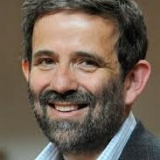Twenty years ago, governments gathered for the United Nations Conference on Environment and Development in Rio de Janeiro. The “Rio Declaration” laid out several principles of sustainable development, including the central role of policy instruments. In this article, we take stock of where we stand today in implementing sound and effective environmental policy instruments throughout the world, particularly in developing and transitional economies.
We argue that, as our experience with market-based environmental policies has deepened over the past two decades, so has the ability to adapt instruments to complicated and heterogeneous contexts—but we are only just beginning, and the need to be further along is dire. One key factor may be that economists have not yet meaningfully accounted for the importance of political feasibility, which often hinges on risks to competitiveness and employment, or on the distribution of costs rather than on considerations of pure efficiency alone.

